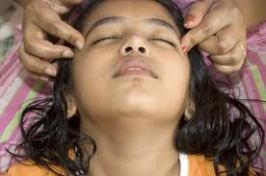
Stress isn’t reserved for adults alone, Children also go through it. School demands from various subjects, peer demands and trying to fit in, listening to the news and viewing disturbing images and stories, listening to worries concerning the job of parents, separation anxiety, death of a parent, illness of loved relative, family routines, changing schools, quitting bedwetting… The list goes endless.


Stress occurs because of the demands placed on us and our ability to meet them. These demands often could come from outside sources (such as school, friends, and family) or from within, often related to what we think we should be doing versus what we’re actually able to do (e.g. making A’s in numeracy rather than C’s) These demands may be overwhelming to children.
SIGNS AND SYMPTOMS
- Trouble concentrating on school work. Complaining more than usual about school. Lack of motivation to do school work and take home assignments. This often results in poor school performance.
- Changes in eating and sleeping behavior. This may include over eating/sleeping or not eating/sleeping well enough.
- Constant complains about headaches, stomach aches, chest aches without other medical causes. They also sometimes tend to use self-derogatory words e.g., “nobody likes me’’
- Nightmares; Sleep related fear is often regular in children expressing stress.
- Bedwetting; As a result of experienced stress, they may find it difficult to recognize toilet/pee signals.
- Emotional Tantrums; They may tend to be more aggressive, cry too much, react stubbornly to parents, mood swings as a result of constant worry to please parents/teachers and coaches.
- Changes in Social Interaction; Kids experiencing stress may isolate themselves from their peers/ friends. They may also avoid contact with their parents thus, choosing to be by themselves always. They also would withdraw from activities that formerly gave them joy. Clinging to a parent or teacher is also an observed behavioural characteristics of children experiencing stress.

How then can children perform at their optimum level? How can they have unadulterated concentration, focus in school and be the best they can be without feeling stressed or undergoing pain as a result of being stressed?
THE ANSWER IS MINDFULNESS!

Mindfulness is the practice of focusing your attention in the present moment. Accepting the present without being judgmental about it. When you are engaged in mindfulness, you can observe your thoughts and feelings objectively without self-blame or persecution.
BENEFITS OF MINDFULNESS.
Increased ability to cope with stressful situations.
Improved attention and focus, thus leading to peak academic performance.
Improved resilience.
Higher self-esteem.
Better ability to regulate one-self.
Improved mood

TIPS ON MINFULNESS FOR CHILDREN
- A quiet room would be needed. A serene and natural environment if possible.
- There should be a particular scheduled time every day for mindfulness meditation.
- Few Children per facilitator. A crowded place may not be an ideal environment for mindfulness. Noise of various degrees which may seem impossible to stop might also arise. Thus, defeating the objectives of the mindfulness exercise.
- Time management. In order to achieve peak focus without pee breaks, it should be scheduled for a short period of time. Between 10-20 minutes.
For information on how to carry out mindfulness meditation, visit www.mobilehealthconsult.org/smartmind